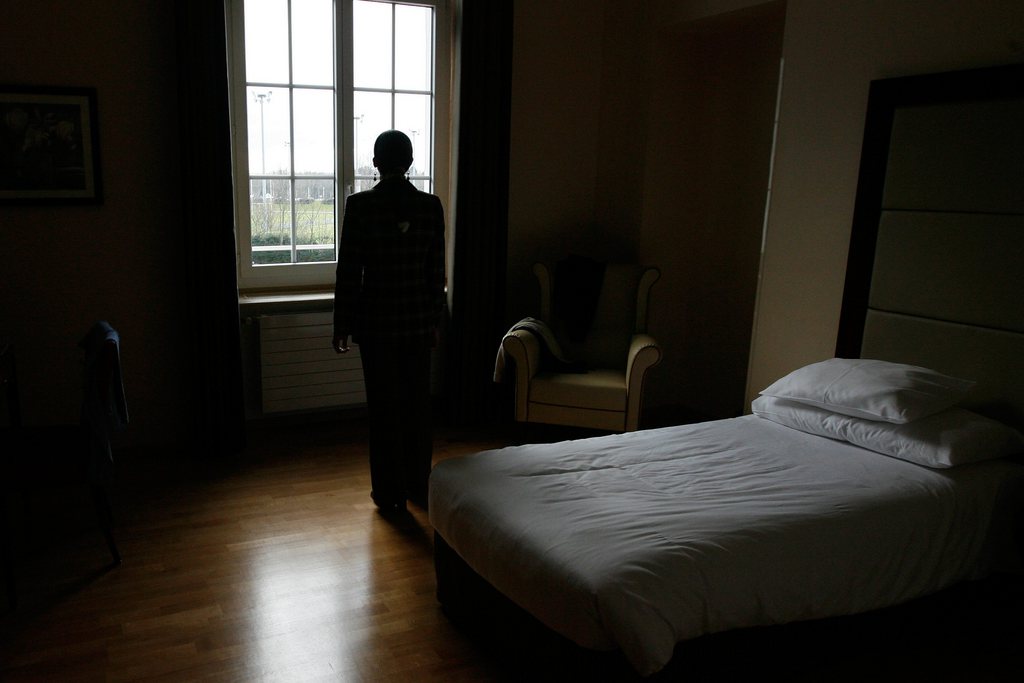Full moon could affect your sleep

Researchers at the University of Basel have found evidence that moon phases could determine how well people sleep, the first time a peer-reviewed study has highlighted a possible connection.
The scientists led by Christian Cajochen of the university’s psychiatric hospital looked back at the results of a study carried out a decade ago, focusing on the influence of the so-called circadian clock on people’s sleep patterns.
The subjects were isolated at the time for three-and-a-half days in a chronobiology laboratory, where there are no windows, no way of knowing the time of day and no access to telephones or television. Participants were also not aware that the results would be used in relation to lunar cycles.
“The advantage was that we were able to take the data and see if there was a relation with the moon phase from the day the subjects entered the lab,” Cajochen told swissinfo.ch. “We actually wanted to disprove that the lunar cycle has any influence on human sleep.”
The results, published in the latest edition of Current Biology, show that both people’s own perception of their sleep quality and the objective measurement of that quality changed with the lunar cycle.
With a full moon, brain activity related to deep sleep fell by 30 per cent, while subjects took five minutes longer to fall asleep and slept 20 minutes less overall. The volunteers also felt they had slept less well at the time of the full moon and had lower levels of melatonin, a hormone that regulates sleeping and waking cycles.
“This is the first reliable evidence that lunar rhythm can modulate sleep structure in humans,” said Cajochen.
The only previous indication this might be case came from a study at the University of Bern on the effects of mobile-phone antennae on people’s sleep, according to the researcher. That study revealed no effects from mobile phone networks, but some participants complained of poor sleep during full-moon phases.
Relic from the past?
The explanation could be that lunar rhythm could be a relic from the past, when human behaviour was influenced by the moon. This is already the case for some species, such as marine animals, whose reproductive activity is synchronized with the lunar cycle.
While human behaviour is now defined by modern life, the researchers say that in a controlled environment such as a laboratory, the moon’s influence can be measured.
The idea to use data from the earlier study came six years after it was completed, while Cajochen was sitting with colleagues in a bar.
“You look at the moon and you know people complain, that there are myths concerning it. So I thought why shouldn’t we look at our very controlled data and analyse it,” he said.
But looking to prove there was no effect, he come up with the opposite, a fact that troubled him.
“I didn’t try to get it published for another four years because I was worried about the hype,” Cajochen admitted. “Clinicians encouraged me though because they have a lot of insomniac patients who mention the moon as a factor disturbing their sleep.”
He says that feedback about the study has been positive, and the reviewers were unable to fault the methodology. He reckons though that convincing someone to fund further research will be difficult.
“We could find people to repeat the study and extend it to 40 days. But it would cost around €200,000 (CHF250,000), notably to pay the participants,” Cajochen told swissinfo.ch. “I’m not sure that we can find someone who is prepared to spend that kind of money.”

In compliance with the JTI standards
More: SWI swissinfo.ch certified by the Journalism Trust Initiative











You can find an overview of ongoing debates with our journalists here . Please join us!
If you want to start a conversation about a topic raised in this article or want to report factual errors, email us at english@swissinfo.ch.